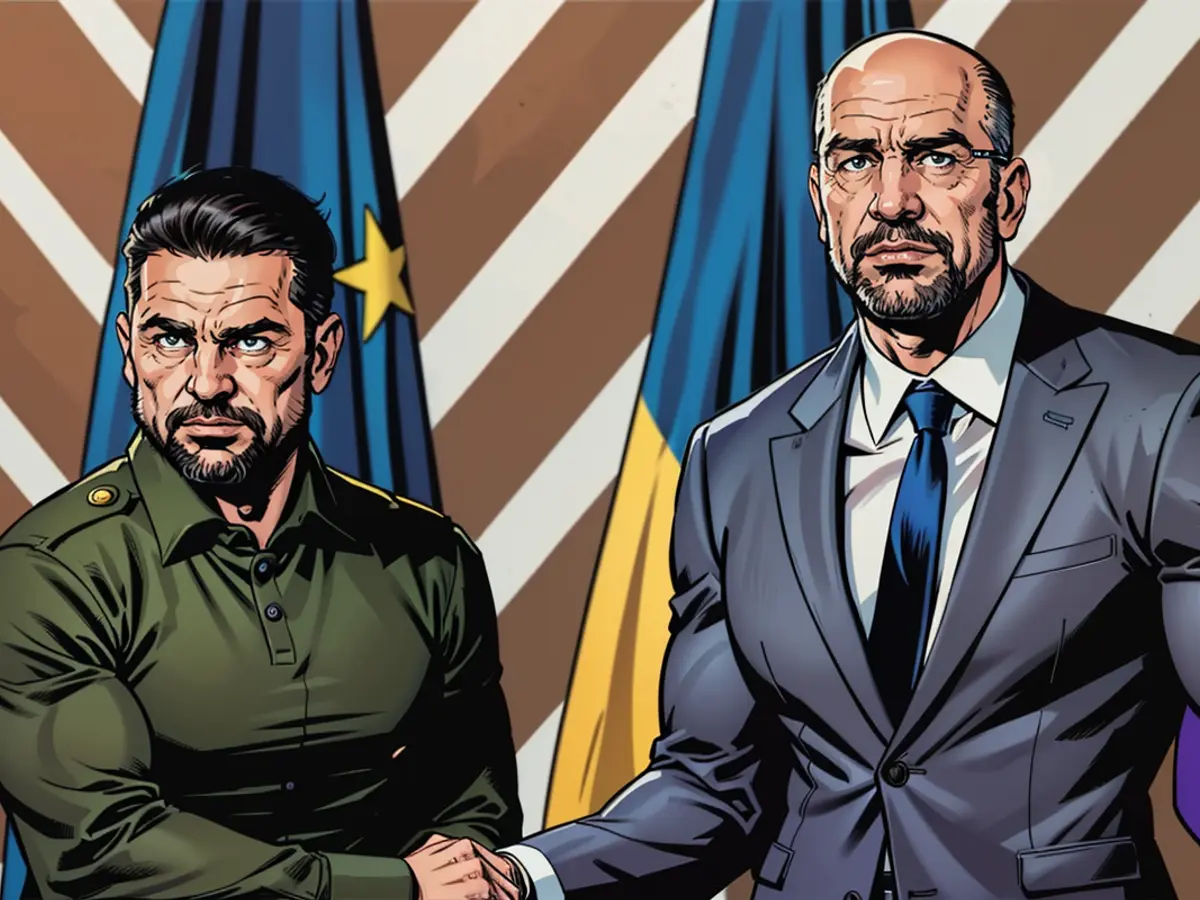Summit meeting in Brussels - EU and Ukraine sign security agreement
The EU has reached an agreement with Ukraine on security cooperation and long-term support in the face of Russia's attacks. The document was signed on a Thursday on the sidelines of the EU summit in Brussels by Ukrainian President Volodymyr Zelenskyy, EU Commission President Ursula von der Leyen, and EU Council President Charles Michel.
The agreement includes, for example, a new crisis mechanism. If Russia were to use atomic weapons during the current invasion or attack again after the end of the war, consultations would be required on both sides within 24 hours. Together, they would then discuss possible support, such as weapons deliveries. The EU does not commit to direct military aid in the agreement.
Ukraine and EU: Weapons Cooperation to be Expanded
Furthermore, closer cooperation between Ukraine's defense industry and the EU, as well as in the fight against cyber attacks and disinformation, is planned.
Unilaterally, the EU pledges to continue efforts for further financial aid, weapons deliveries, and the training of Ukrainian soldiers and soldiers. For example, the EU intends to participate in a G7 initiative for a short-term $50 billion package (47 billion Euro) for Ukraine. It would supplement an already approved financial aid package of €50 billion and the similarly well-funded financing mechanism for weapons deliveries to Ukraine.
As Long and Intensively as Necessary
In general, the agreement states: "The European Union is determined to continue providing the necessary political, financial, economic, humanitarian, military, and diplomatic support to Ukraine and its population as long and as intensively as necessary."
The agreement with security guarantees goes back to an initiative of the G7 group of Western economic powers. They had agreed at the NATO summit in Lithuania last year that individual countries should conclude bilateral agreements with Ukraine to secure its long-term security. The EU is now joining in. The process was initiated by countries like the United Kingdom, Germany, and France in January and February. The United States followed suit more recently.
Agreement is not legally binding
As a political statement of intent, the EU agreement is not legally binding. The same applies, for example, to the German agreement with Ukraine.
Lastly, Zelenskyy was in Brussels at the end of May to sign a security agreement between his country and Belgium. With this agreement, Belgium has pledged to provide Ukraine with the delivery of 30 F-16 fighter jets. The delivery is planned to begin still in this year. It should be completed by 2028.
- Despite Russia's attacks on Ukraine, the EU has entered into a security cooperation agreement with Ukraine, providing long-term support and signing the document in Brussels with President Zelenskyy, von der Leyen, and Michel.
- In line with the EU-Ukraine security agreement, there are plans for closer defense industry cooperation and increased efforts to combat cyber attacks and disinformation.
- The EU has committed to continuing financial aid, weapons deliveries, and training for Ukrainian soldiers, with potential involvement in a $50 billion G7 initiative for Ukraine's support.
- The EU-Ukraine security agreement, initiated by G7 powers, is not legally binding, echoing the same status for Germany's agreement with Ukraine, but both aim to provide necessary political, financial, and military support to Ukraine for as long as required.








